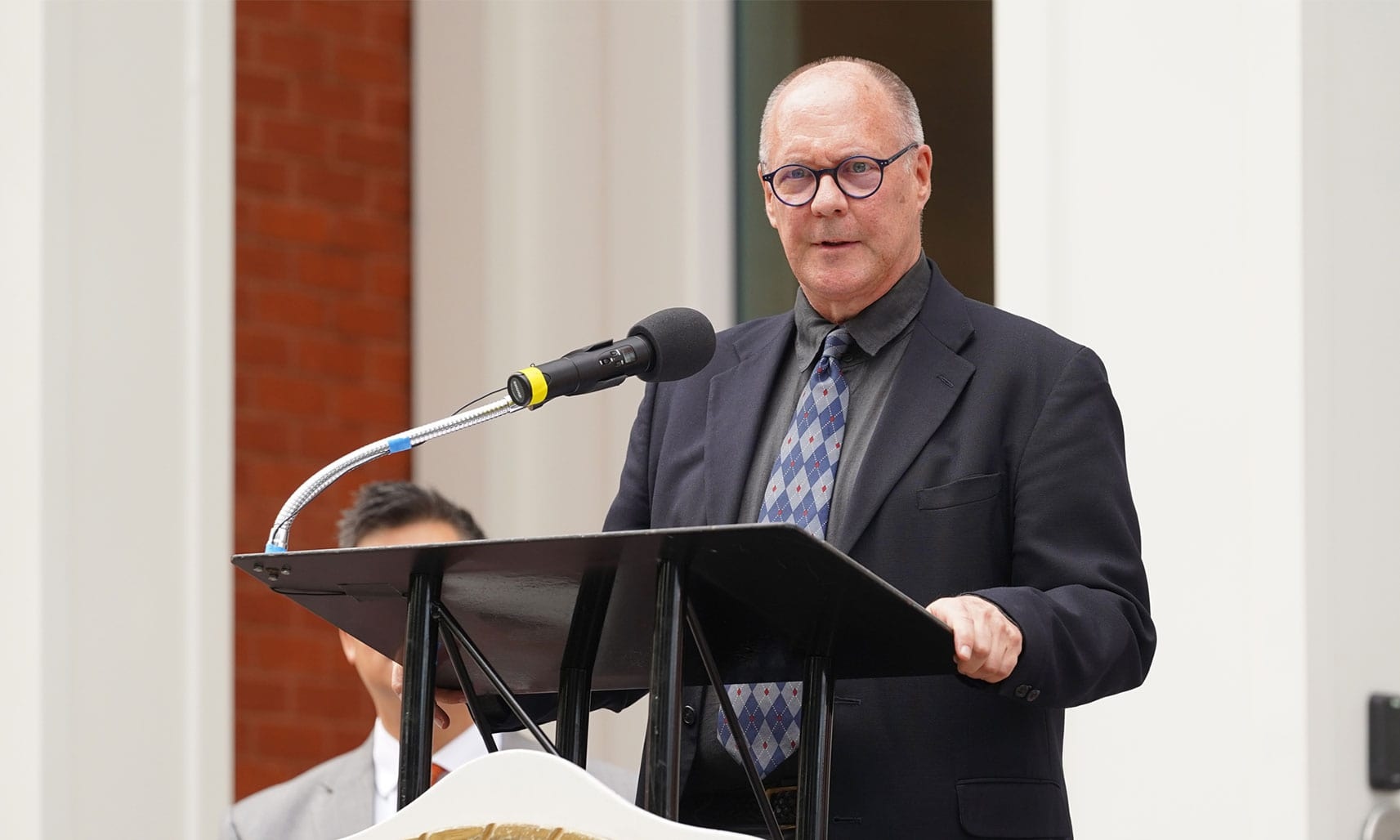When David Baker started teaching at Denison in 1984, he placed the poet Wallace Stevens on the English 219 syllabus that year.
The professor emeritus taught the last of his classes on The Hill in spring 2024, and Stevens was still on the syllabus. Baker can’t imagine studying American poetry without him.
“He’s been with me, and with my teaching, all along,” Baker says. “Stevens is one of the monument poets of the first half of the 20th century. He is massive. He did things in his poems that nobody else could do.”
Now Baker is sharing his decades-long appreciation of Stevens with audiences far beyond Granville. He is one of three contemporary poets interviewed for an episode of the PBS series Poetry in America.
The episode, which first aired May 6, can be found on local PBS stations, the PBS World channel, and online through June 3. In it, renowned poetry critic and host Eliza New looks at Stevens’ influence by highlighting two of his poems, “The Emperor of Ice-Cream” and “The Motive for Metaphor.” She interviews Baker and two other poets, as well as poetry students and a diverse group including an ice cream shop owner, a cognitive scientist, and a former U.S. treasury secretary.
Baker isn’t sure how his name came up, although he had authored an essay on Stevens and spoke at a symposium on the poet a few years before PBS came calling.
“I got this invitation out of the blue, and it was a real honor,” Baker says. “These shows are a big deal for us poets.”
Baker, though, wasn’t always a fan of Stevens. As a first-generation college student, he initially found the poet pretentious and overly complicated.
“I thought, ‘I want real stuff, not this,’” Baker says.
But, Baker says, “poetry demands that we go slow.” And the more time he spent with Stevens’ words, the more awestruck he became.
“I began to learn how much fun he is, how contrary to a kind of stuffy academic poet he is,” Baker says. “He’s a blast, but it took me years to get to that point.”
Baker has often used “The Emperor of Ice-Cream” to introduce new classes of students to poetry, precisely because it’s tough.
“I read it aloud, and I look at their faces of bafflement,” he says. “It’s this explosion of wonderful language, but you’re lost. We talk about the value, if there is any, of difficulty, and of grappling with something that may be opaque at first. And by the time you’ve spent time with it, you realize how lucid it is, how not difficult it is at all.”
His days leading discussions in a Denison classroom may be behind him, but Baker can’t imagine a life without poetry.
“If I didn’t have that particular aspect of my imagination, I don’t think I would enjoy this life,” he says. “It keeps me feeling vital and surprised, and it keeps whatever that thing is in us — the soul, the spirit, whatever — it keeps that thing deep in me and vivid in me. That’s a lucky thing.”
And he counts himself lucky to have taught the craft at Denison for 40 years.
“I’m writing a book about teaching poetry that’s mainly about my years at Denison,” he says. “I’ve been so grateful to have this chance. Teaching to me seems to be one of the gracious exercises.”







